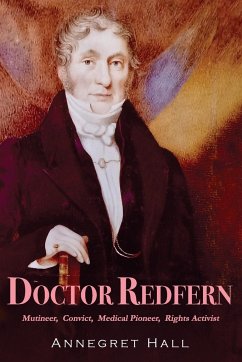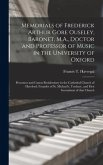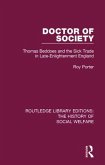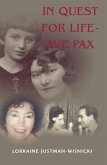William Redfern is Australia's first medical graduate. His pioneering work in public health medicine is acknowledged with the William Redfern Oration given at the annual congress of the Royal Australasian College of Physicians. Redfern was a surgeon's mate aboard HMS Standard during the 1797 Nore mutiny. For his involvement he was sentenced to death and spent three years in Coldbath Fields prison, England's cruelest jail, before being transported to New South Wales. The opening chapters narrate Redfern's training as a surgeon; the Nore mutiny; his court-martial; his imprisonment in England and transportation to NSW. Redfern is sent to Norfolk Island as a convict to work as a surgeon in the hospital. He spends seven years there during the era of Joseph Foveaux, John Piper and surgeon D'Arcy Wentworth. He earns an absolute pardon; returns to Sydney following the overthrow of Governor William Bligh and is appointed surgeon at the old George Street hospital. He treats the imprisoned Bligh, who had been a captain aboard a ship involved in the Nore mutiny. Governor Macquarie makes him the health inspector of convict ships and Redfern becomes his personal physician and a close confidant of Macquarie. Redfern helps plan Sydney's "Rum hospital" and is the supervising surgeon there; also has a large private medical practice. In 1819 he resigns from the hospital when not appointed as Principal Surgeon and quits medicine after Commissioner Bigge, who was inquiring into Macquarie's liberal emancipist policies, questions his abilities and qualifications. Bigge also cancels his appointment as magistrate. The tumultuous early colonial years in New South Wales are revealed through Redfern's personal life and medical experiences. The closing chapters describe Redfern's successes in medicine, banking and agriculture. He becomes one of the most respected members in the colony but, as an emancipist, he was shunned socially. He becomes an activist for emancipist civil rights and sails to London with Edward Eagar to petition the British Parliament. Years later William Redfern enrolls in medical studies at Edinburgh University while overseeing the education of his oldest son.
Hinweis: Dieser Artikel kann nur an eine deutsche Lieferadresse ausgeliefert werden.
Hinweis: Dieser Artikel kann nur an eine deutsche Lieferadresse ausgeliefert werden.








